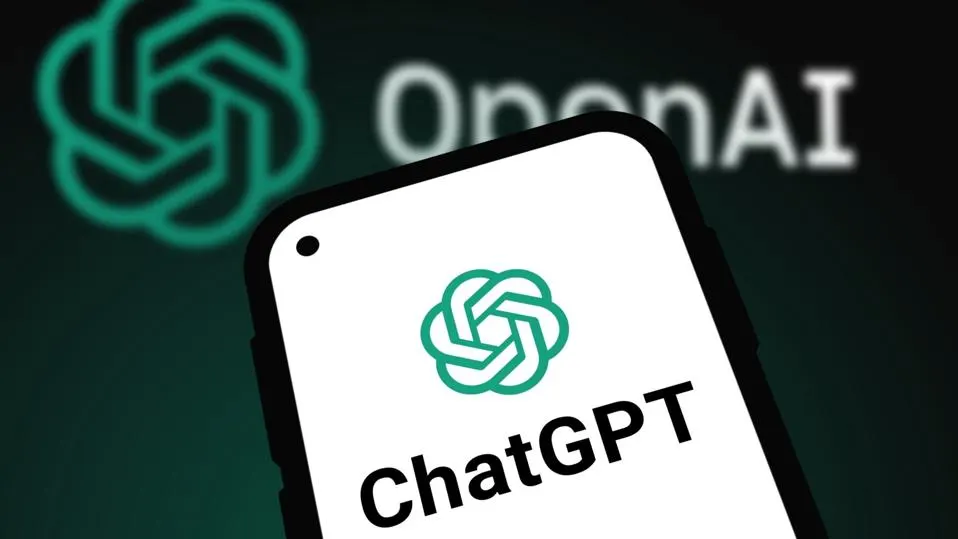AI Can Change Conspiracy Theorists’ Minds, Study Finds. Here’s How
14 October 2024
Belief in conspiracy theories is more than just a fringe phenomenon. From COVID-19 hoaxes to political cover-ups, conspiracy thinking has infiltrated every corner of society. Despite the ease of fact-checking in the digital age, many continue to hold fast to these beliefs. What if artificial intelligence could change that? Recent research published in the prestigious Science journal suggests AI might just be the key to reducing harmful conspiracy thinking.
Generative AI models — like OpenAI’s GPT series — have shown surprising effectiveness in engaging conspiracy believers in tailored dialogues. By directly addressing the evidence people cite for their beliefs, AI is able to gradually chip away at even the most entrenched viewpoints. The question is, how does this work, and can AI really help society combat misinformation in a sustainable way?

A Persistent Problem
The prevalence of conspiracy theories is concerning, especially given their real-world consequences. From the insurrection on January 6 to COVID-19 denialism, these beliefs have not only threatened public safety but also undermined democracy itself. Traditionally, psychologists have argued that conspiracy beliefs fulfill psychological needs — providing believers with a sense of control or uniqueness — and are resistant to factual counterarguments.
But what if the problem isn’t so much the psychology of believers as the way facts are presented to them? Could it be that people cling to conspiracies simply because they’ve never encountered evidence in a way that truly resonates with them? This new research suggests that AI might hold the answer.
The Power of AI Dialogues
MIT and Cornell researchers Thomas Costello, Gordon Pennycook and David Rand used AI to engage 2,190 participants, each of whom believed in a conspiracy theory, in real-time conversations. They asked the participants to explain the conspiracy they subscribed to, after which the AI engaged them in a three-round dialogue, challenging their views with fact-based counterarguments.
The results were astonishing: the AI-driven conversations reduced belief in these conspiracy theories by an average of 20%. Even more remarkably, this effect persisted for at least two months. The conversations were highly personalized, addressing the specific evidence the participants presented, which likely contributed to their success.
What’s more, this technique wasn’t just effective for “small” or “fringe” conspiracy theories. Participants who believed in widely circulated conspiracies — like those involving COVID-19, the 2020 U.S. election or even longstanding beliefs about the Illuminati — were just as likely to reduce their belief after interacting with the AI.
Why AI Works Where Humans Struggle
What makes AI more persuasive than your average human fact-checker? For one, AI doesn’t get emotional or frustrated, which is often a barrier in human-to-human debates. When someone refuses to budge, our instinct is to either argue more aggressively or disengage. AI, on the other hand, can keep a cool and consistent tone, guiding the conversation with infinite patience.
Another advantage AI offers is its ability to generate bespoke responses. Every conspiracy believer has their own version of why they believe what they do, and one-size-fits-all debunking simply doesn’t work. AI can process and respond to the specific arguments each individual makes, so the dialogue feel more like a personal discussion rather than a lecture.
Crucially, the AI didn’t just debunk conspiracies blindly. It was able to differentiate between unsubstantiated claims and those rooted in truth. When participants mentioned real conspiracies (such as the CIA’s MK Ultra experiments), the AI didn’t attempt to discredit them, which likely boosted its credibility in other areas.
Sustained Impact: Changing Minds for the Long Term
The effectiveness of these AI dialogues isn’t just a fleeting win. The study showed that the reduction in conspiracy belief wasn’t a short-term effect that faded after a few days. In fact, participants showed no significant return to their prior levels of belief even two months later.
What’s even more impressive is the spillover effect. The dialogues focused on one specific conspiracy theory per person, but after interacting with the AI, participants also reduced their belief in other, unrelated conspiracies. This suggests that the intervention helped shift their overall worldview away from conspiratorial thinking.
Beyond just changing beliefs, the participants showed real behavioral shifts, too. Many expressed increased intentions to ignore or argue against other conspiracy believers, and some were even less likely to participate in protests related to conspiracy theories. This behavioral change hints at AI’s potential to reduce the spread of misinformation in broader social contexts.
A Double-Edged Sword?
While the potential for AI to debunk misinformation is incredibly promising, the flip side of this technology must also be considered. AI can easily be trained to spread misinformation just as effectively as it can debunk it. Without careful guardrails, generative AI could be weaponized to reinforce false beliefs, making it essential for platforms and developers to enforce strict guidelines on how AI is used in public discourse.
That said, the positive implications of using AI as a tool for truth are profound. In a world where misinformation is rampant, AI could become an invaluable resource for journalists, educators and fact-checkers. Instead of playing “whack-a-mole” with every new conspiracy, we could see scalable solutions where AI systematically engages with misinformation on social media, in search engines and beyond.
Optimism In A Post-Truth World?
The success of AI in changing minds should inspire optimism. For too long, many have assumed that once someone falls down the rabbit hole of conspiracy thinking, they are lost to reason. But this study shows that even entrenched conspiracy believers can be swayed with the right approach — one that is patient, personalized and backed by evidence. AI might not single-handedly solve the misinformation crisis, but it certainly adds a powerful new tool to the fight.
Related Articles
The Simple ChatGPT Trick That Will Transform Your Business AI Interactions
I believe ChatGPT and other generative AI tools can help pretty much any business.[...]
The Third Wave Of AI Is Here: Why Agentic AI Will Transform The Way We Work
The chess pieces of artificial intelligence are being dramatically rearranged. While previous iterations of AI focused on making predictions or generating content, we're now witnessing the emergence of something far more sophisticated: AI agents that can independently perform complex tasks and make decisions.[...]
How Generative AI Will Change Jobs In Cybersecurity
Ensuring robust cybersecurity measures are in place is more important than ever when it comes to protecting organizations and even governments and nations from digital threats.[...]
The 10 Most Important Banking And Financial Technology Trends That Will Shape 2025
As technological disruption and economic uncertainty continue to reshape the financial landscape, alongside dramatic shifts in consumer behavior and regulatory requirements, 2025 promises to be both challenging and opportunistic for banking and financial services.[...]
The 6 Most Powerful AI Marketing Trends That Will Transform Your Business In 2025
The quiet hum of AI servers is rapidly drowning out the traditional drumbeat of marketing departments worldwide.[...]
AI Everywhere – Scaling AI In The Cloud With Intel® Xeon®6
Today, the omnipresent AI that we’re starting to take for granted has become a critical tool for business.[...]
Sign up to Stay in Touch!
Bernard Marr is a world-renowned futurist, influencer and thought leader in the fields of business and technology, with a passion for using technology for the good of humanity.
He is a best-selling author of over 20 books, writes a regular column for Forbes and advises and coaches many of the world’s best-known organisations.
He has a combined following of 4 million people across his social media channels and newsletters and was ranked by LinkedIn as one of the top 5 business influencers in the world.
Bernard’s latest book is ‘Generative AI in Practice’.










Social Media